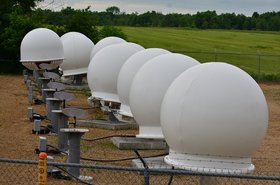The UK needs to better engage with its international partners, in particular South Korea, to shore up its semiconductor supply chain resiliency, according to a new report from the Centre for Emerging Technology and Security (CETaS).
The research center, which is based at the government-funded Alan Turing Institute, presented a number of recommendations in its report titled ‘Semiconductor Supply Chains, AI and Economic Statecraft.’ The study is a collaboration between the Institute and Chung-Ang University, Seoul, with a specific focus on strengthening the UK-Korea bilateral partnership.
South Korea is home to the two largest memory chipmakers in the world, SK Hynix and Samsung Electronics. Both are also amongst the top ten biggest semiconductor companies globally, and Samsung is one of only two manufacturers, along with Taiwan's TSMC, capable of producing leading-edge CPUs and GPUs.
According to the report, unlike the US, China, the European Union, India, and South Korea, the UK government has failed to incentivize chip manufacturing. Because of this, the report argues the UK must collaborate with international partners as currently, those “wishing to work with the UK on semiconductors lack a clear point of engagement.”
Highlighting what it described as a “golden period in UK-Korea relations, following the November 2023 UK-Korea Downing Street Accord”, the report says that Korea is one of the key countries with which the UK must explore a more ambitious bilateral approach, due to a number of common interests.
These included a shared concern about the potential risks posed by China and the complementary expertise each country possesses in the semiconductor industry – the report says the UK is well positioned with regards to core intellectual property (IP) and chip design, while Korea has significant capabilities in the manufacturing stage of the supply chain.
The report added: “Both countries are showing a desire to be at the vanguard of AI innovation and international discussions concerning AI safety. The second Global AI Safety Summit planned to be co-hosted by Korea and the UK this year is testament to this.”
In total, 15 recommendations across four broad categories were proposed by CETaS as a way to improve the partnership between the UK and South Korea.
The four categories are: coordinating and convening stakeholders; joint R&D and investment; skills cultivation and training; and international diplomacy, under which recommendations such as establishing a UK national semiconductor institute, collaboration on new AI compute architectures, jointly developing AI-based open-source electronic design automation (EDA) tools, and closer policy alignment all sit.
“Both governments have made clear their intent for closer technology and security alignment, but targeted action is needed to ensure their academic and private sector communities buy into the same vision and deliver on implementation at the ground level,” the report concluded. “If successful, the UK-Korea model of semiconductor-AI cooperation could become the blueprint for others to follow.”






